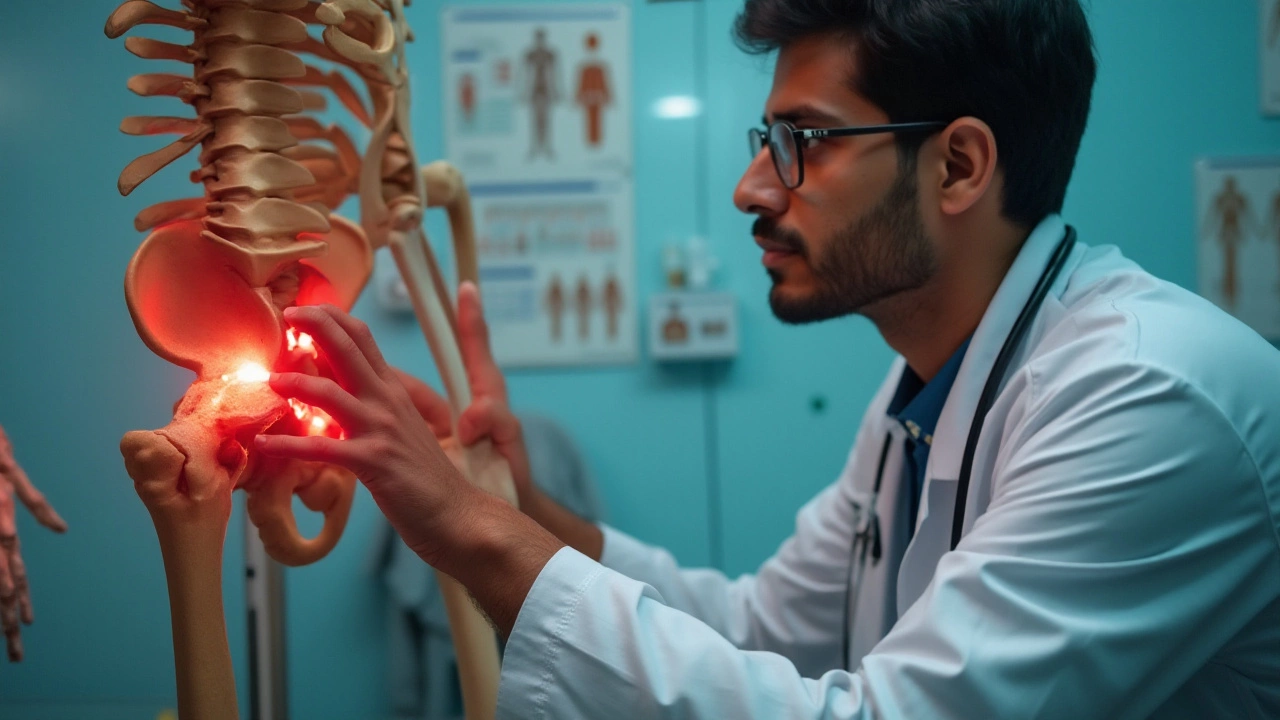Orthopedic Help: Real‑World Tips for Bone and Joint Care
If you’re reading this, you probably have a question about bones, joints, or a recent doctor’s note. Maybe you’re nervous about your first orthopedic appointment, or you’re stuck wondering how many days you really need to rest after knee replacement. You’re not alone, and the answers are simpler than you think.
What to Expect at Your First Orthopedic Visit
The first visit isn’t a mystery. You’ll meet the orthopedic surgeon, often a doctor who specializes in muscles, bones, and joints. They’ll ask about your pain, look at medical history, and probably order an X‑ray or MRI. In India, most clinics charge a flat fee for the consult, and you’ll get a clear treatment plan before you leave. Bring a list of any medicines you’re taking – this helps the doctor spot potential drug interactions that could be risky.
During the exam, the doctor may check your range of motion, strength, and stability. They might ask you to walk, squat, or lift your leg while they watch. The tests sound technical, but they’re just ways to pinpoint where the problem lies. If surgery is recommended, you’ll hear about the type of operation, expected recovery time, and cost. Knowing these details upfront saves you surprise bills later.
Managing Pain and Recovery After Orthopedic Surgery
Orthopedic surgery can be painful, especially procedures like spinal fusion or joint replacement. The pain isn’t just a side effect; it tells your body what’s healing. Modern painkillers are safer than before, but they still carry risks, especially if you have other meds. Talk to your surgeon about the exact dosage and any alternatives.
Recovery timelines vary. For knee replacement, most people need about a week of limited activity, followed by two to four weeks of gradual physiotherapy. You’ll notice swelling for the first few days, then a steady improvement as you start moving the joint. Keep the incision clean, follow the prescribed exercises, and don’t rush to lift heavy objects.
If you’re worried about the hardest orthopedic surgeries, spinal fusion often tops the list. Recovery can take months because the spine needs time to fuse solidly. Physical therapy is non‑negotiable; it helps build core strength and reduces future back pain. Remember, staying active (within limits) speeds up healing.
Cost is a common concern. In India, public hospitals may offer lower fees, but private clinics provide faster appointments and sometimes newer implants. Ask about insurance coverage and any hidden charges before you sign any paperwork.
Beyond the clinic, you can boost recovery with simple home habits. A balanced diet rich in protein, calcium, and vitamin D supports bone healing. Hydration helps manage swelling. Light walking, even a few minutes a day, stimulates blood flow and reduces stiffness.
Finally, don’t ignore mental health. Post‑surgery discomfort can affect mood, and anxiety might slow down rehab. If you feel down, consider talking to a counselor – many patients find that a quick chat with a therapist keeps them motivated.
Orthopedic care is all about informed choices and steady progress. Keep these points in mind, ask questions, and follow your doctor’s plan. Soon enough, you’ll be moving with less pain and more confidence.

Understanding the Most Challenging Bone Fracture to Mend
Bone fractures can vary in severity and healing potential. Among these, certain bones pose significant challenges in terms of recovery due to their location and blood supply. This article delves into which bone is the hardest to heal, exploring the reasons behind its complexity. It also provides useful insights into the healing process and recovery tips for better fracture management.

Legit Online Pharmacies: How to Spot the Real Deal
Mar, 17 2025

Best Mail-Order Pharmacies: Who's Leading the Pack?
Mar, 19 2025

Can Chemotherapy Cure Stage 4 Cancer?
Nov, 24 2024

